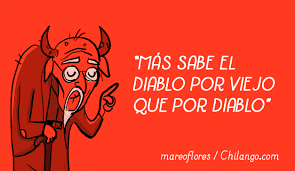Four Articles and a Poem
Weekly, I post four articles that I found significant and a poem accompanied by some comments about what we can learn from them. Our lives are enriched by seeing better. Each week, one article comes from the world of photography, a discipline that is about seeing. Another article comes from the world of technology, hence seeing something of the future. Another article takes up an aspect of our life together, seeing more clearly the other. Another article refers to faith, seeing the unseen. Finally, the weekly post concludes with a poem, because poetry is about seeing words whose arrangement allows us to see anew.
Thank you for reading this post. Today, we will take up the issue of languages and, more specifically, the death of languages. Next, we will take a look at the aftermath of the attack in Paris and some suggestions on how not to overreact to the terrorist threat. Then, we will see through Twitter and an experience of conversion. In the world of photography, I share with you the feed for the U.N. High Commissioner for Refugees, that we might see the face of those who so many wish to ignore. In poetry, we turn to William Blake.
"A Poison Tree"
by William Blake
I was angry with my friend:
I told my wrath, my wrath did end.
I was angry with my foe:
I told it not, my wrath did grow.
And I watered it in fears,
Night and morning with my tears;
And I sunned it with smiles,
And with soft deceitful wiles.
And it grew both day and night,
Till it bore an apple bright.
And my foe beheld it shine.
And he knew that it was mine,
And into my garden stole
When the night had veiled the pole;
In the morning glad I see
My foe outstretched beneath the tree.
Thank you for reading this post. Today, we will take up the issue of languages and, more specifically, the death of languages. Next, we will take a look at the aftermath of the attack in Paris and some suggestions on how not to overreact to the terrorist threat. Then, we will see through Twitter and an experience of conversion. In the world of photography, I share with you the feed for the U.N. High Commissioner for Refugees, that we might see the face of those who so many wish to ignore. In poetry, we turn to William Blake.
- Media (R)evolutions: The internet and the death of languages. For many years, I have had interest in the fate of the world's languages. Languages convey structures of thought that are shaped by the language. I believe that speaking a second language allows one to access different ways of thinking. Each language offers unique elements, and the world is impoverished when a language disappears. We are impoverished, as well, by a growing sense of sameness, the way that a street with box stores and chain restaurants could be anywhere in the U.S. and, just as easily, anywhere in the world. On the World Bank's blog, Roxanne Bauer, a consultant to the World Bank's External and Corporate Relations, Operational Communications department (ECROC), writes about a diminishing use of languages not widely found on the internet. Note: when the young no longer learn their parents' language, the language is not imperiled or endangered; the language is virtually extinct if the young do not learn it.
- How not to overreact to ISIS. Jeremy Shapiro of Brookings offers three suggestions to frame an apropriate response to terrorism. An older piece from Yuval Noah Harari offers more depth: "The Theatre of Terror." Sadly, I am disappointed by the replies of many presidential candidates.
- How a prized daughter of the Westboro Baptist Church came to question its beliefs. Three years ago, a member of the Phelps family deserted the Westboro Baptist Church with her sister. The New Yorker published a lengthy piece on how and why she left. The article mixes social media with quotations, rendering a living portrait of this young woman and her relationship with her family, their church, and the hate that the church advocates.
- Photo gallery from the U.N. High Commissioner for Refugees and the U.N. Refugee Agency. It is important to see the faces of those to whom so many cowardly elected officials and candidates wish to close the door. A number of commentators and web memes have pointed out the incongruity between turning out backs on the refugees and our national ideals as well as the tenets of those who profess the Christian faith. Stephen Colbert offered a brilliant conclusion here regarding the Christian faith, and former U.S. Marine Phil Klay offered a strong rebuttal regarding our national identity on twitter gathered here.
"A Poison Tree"
by William Blake
I was angry with my friend:
I told my wrath, my wrath did end.
I was angry with my foe:
I told it not, my wrath did grow.
And I watered it in fears,
Night and morning with my tears;
And I sunned it with smiles,
And with soft deceitful wiles.
And it grew both day and night,
Till it bore an apple bright.
And my foe beheld it shine.
And he knew that it was mine,
And into my garden stole
When the night had veiled the pole;
In the morning glad I see
My foe outstretched beneath the tree.




Comments
Post a Comment